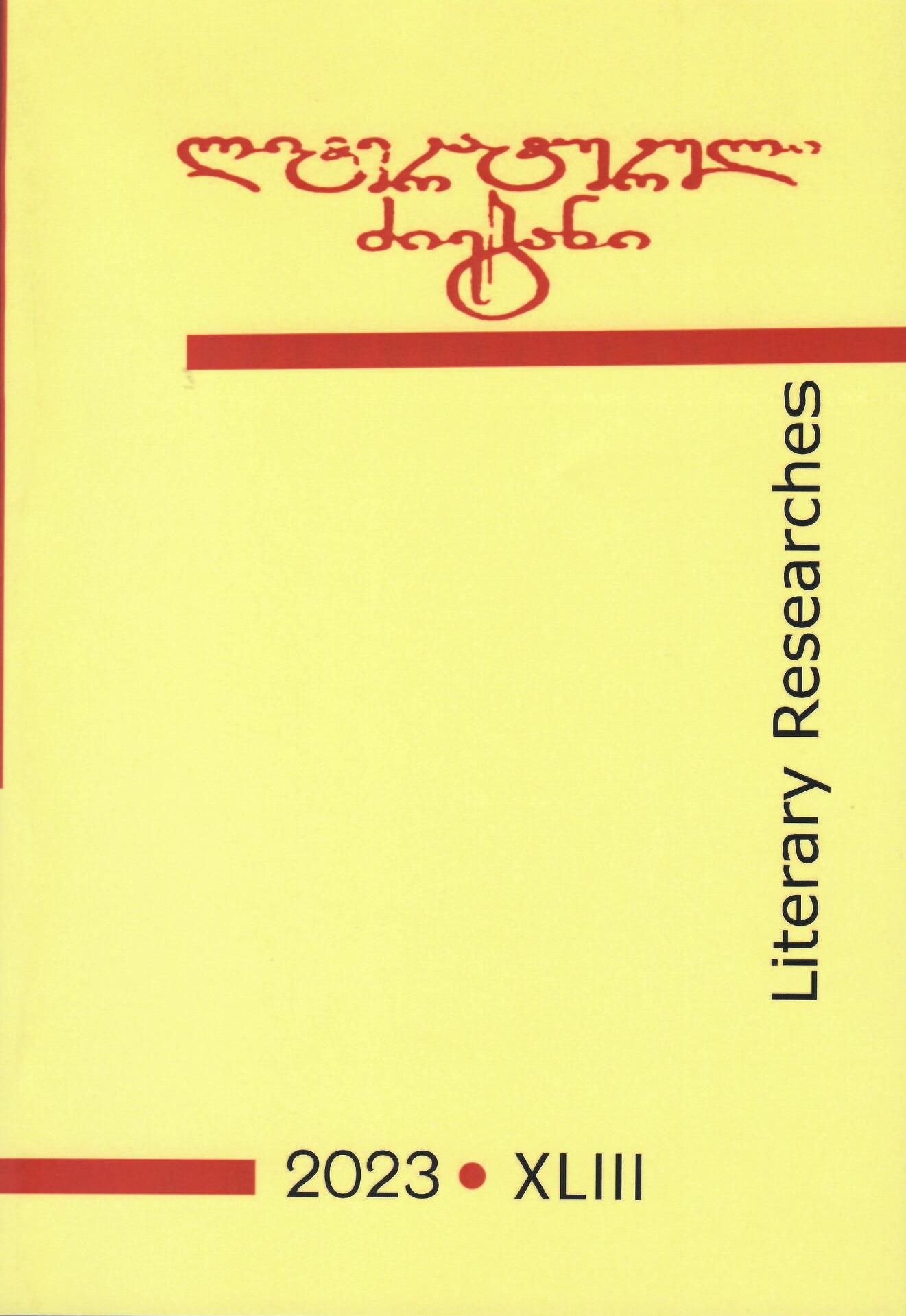Published 2023-12-14
Keywords
- David Guramishvili,
- Davitiani,
- manuscript,
- filiation,
- book
- homeland ...More
How to Cite
Abstract
The manuscript of Davitiani, similar to the other medieval book collections, showcases the extensive and diverse creativity of the author, David Guramishvili. This diversity converges around a singular idea and theme, providing insight into the worldview of David Guramishvili. This article focuses on Davitiani’s creation history and how the book’s symbolic content can be understood. One of David Guramishvili’s paradigms is the evangelical insatiable child. Often away from home, leading a nomadic lifestyle, Guramishvili gained a wealth of wisdom and experience, which he would then bring back home, book in hand. For Guramishvili, books were
tools for preserving oneself, aiding their country, and drawing closer to God. The book is personified, filled with parental emotion and care, alleviating the feelings of loneliness and the fear of death. Thus, the poet sees own book as personified subject, his only legacy, his child, which he nurtured and fathered, and by which he hopes to be survived.
Guramishvili well understood that the wisdom within the book had the power to liberate his homeland, hence his dedicated efforts. Through this book, Guramishvili’s tries rediscovering lost truths, wisdom, God, eternity, and his homeland. Having lived in both Russia and Ukraine, Guramishvili could not find a true sense of home in either place. He decided to send his book to Georgia, his motherland, where it would be read and understood.
It is well known that in many religions and cultures, storytelling and writing were expressions of life, combating darkness and death. In the Middle Ages, Christian thinking bestowed sacredness upon acts of creativity. Within ecclesiastical writing traditions, stories were considered an immortalization of the author and protagonist, serving as a basis of salvation for those who read or listened.
The poetic texts included in the sole handwritten preserved copy of Davitiani are estimated to have been written at different times. According to K. Kekelidze, Guramishvili started writing poems very early, between 1730-1734. However, an unfortunate event in the relations between Georgia and Russia from 1734-1737, particularly the tragic end of the Darubandi expedition, fundamentally altered the lives of the King Vakhtang VI of Kartli and all the King’s Men, including Davit Guramishvili. This was what drove him to take up poetry and writing, attempting to combat his despair with words.
The book that Guramishvili started writing took on the task of educating his nation. He aimed to enrich the readers’ national, religious, ethical, aesthetic values and worldview. Guramishvili harbored an especially emotional attachment to his creation, considering the book as his child. The book, along with its literal context, also held a symbolic one. Mistrust and fear followed Guramishvili everywhere. Hostility towards Guramishvili was evident, having experienced the bitter feeling of having his manuscripts
destroyed more than once.
Davitiani is a paradigmatic, symbolic representation of Georgia, Georgians, and Davit Guramishvili himself.

